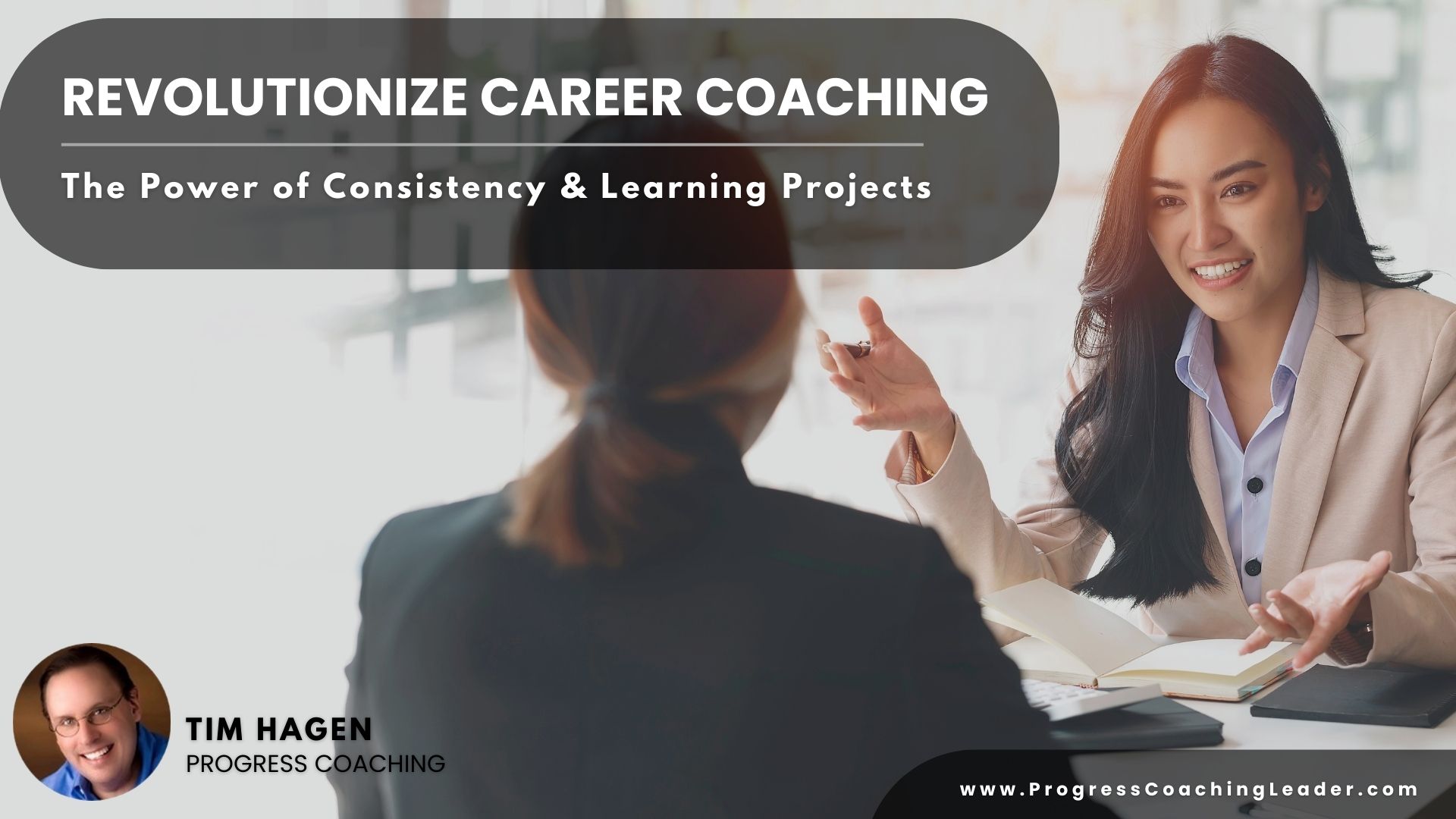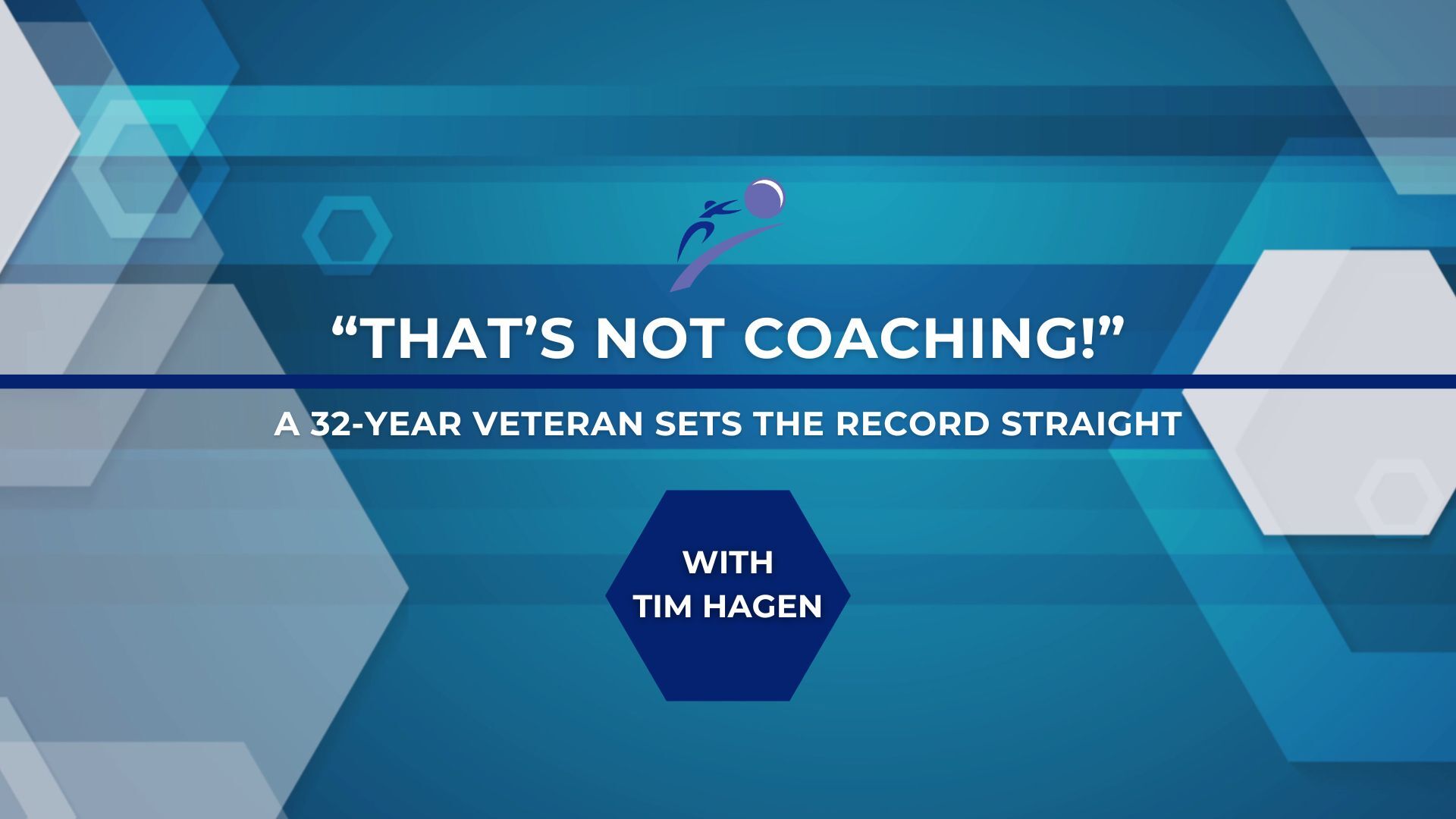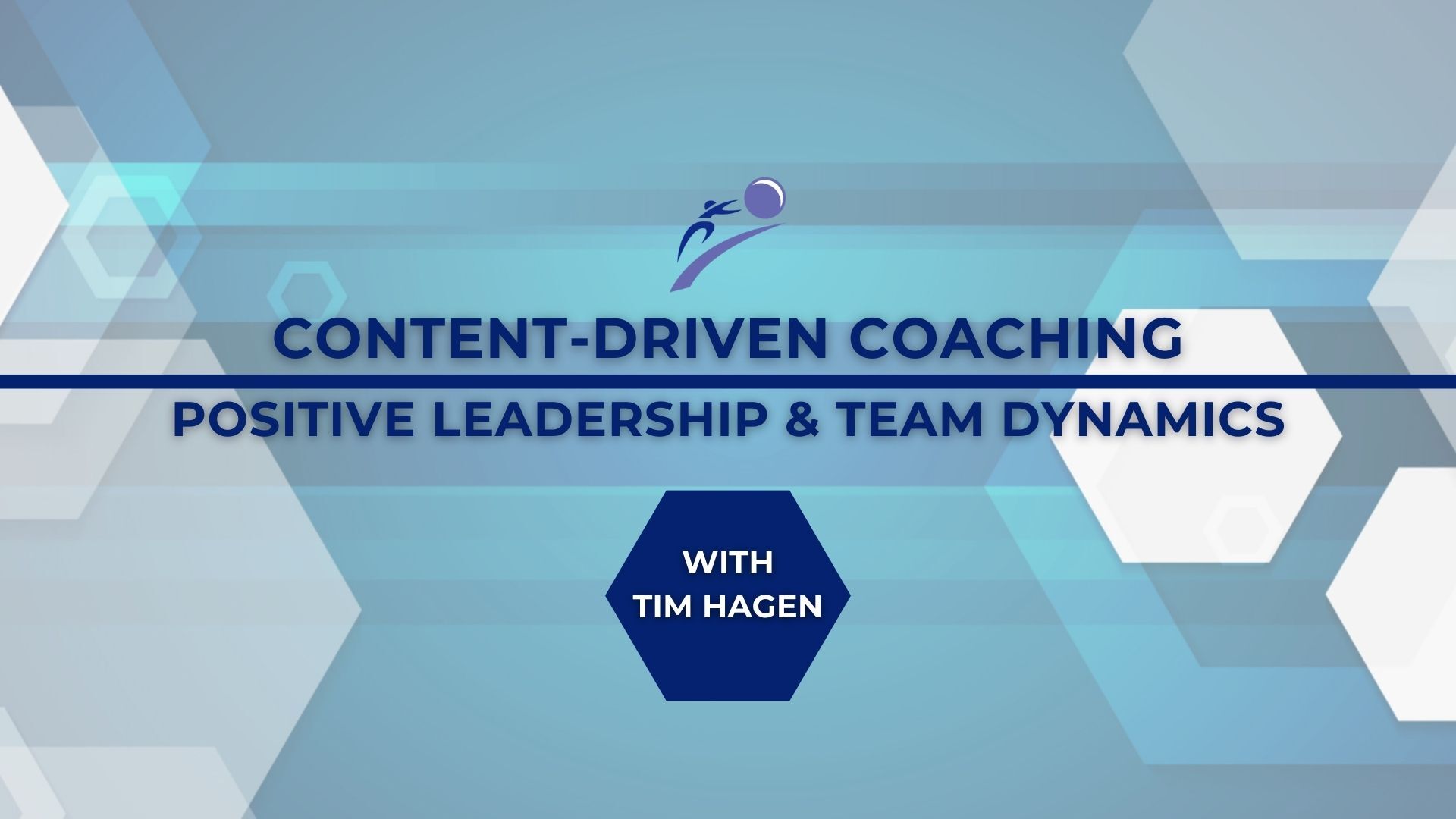Revolutionize Career Coaching
The Power of Consistency & Learning Projects
Ever wondered how to create a cohesive and effective career coaching experience? We've got the answers for you.
We get into the nitty-gritty of maintaining consistency in coaching career conversations. We'll delve into the use of a Learning Project, a powerful tool that helps tie coaching sessions together, creating a sense of continuity, and setting clear and achievable goals.
We outline our targeted, deliberate approach. Advocate for focusing on a single subject over multiple sessions - think 8 to 12 over a quarter, sparing just 8 to 10 minutes each time. Why? Because consistency breeds confidence and a positive association with coaching.
So, get ready to revolutionize your coaching conversations, providing an engaging and rewarding learning journey for your coaches.
When it comes to coaching career conversations, one of the things we need to do most is maintain consistency. Learning Projects help provide that consistency very efficiently.
Learning Projects are something that ties coaching conversations together. For example, if you're coaching someone who wants to become a better speaker, you can start that Learning Project conversation with, "Next week come in with two examples of where you really improved your public speaking skills that will help you achieve your status of becoming a better speaker." That's just an example to start.
When you think about coaching career conversations, Learning Projects really tie things together between coaching sessions. A Learning Project should always start and end every coaching conversation, such as, "Janet, next week come in with two examples of where you felt like you really addressed conflict more readily, more plausibly, more professionally, or more thoughtfully, and how that might help you as it relates to your goal of becoming a director at the company."
The ultimate goal is to have these conversations and tie them together with a Learning Project. When you end the conversation with the Learning Project, then the next week they return, you can say something along the lines of, "Last week I asked you to come in with two examples of where you identified or handled conflict more readily. How might that help you as it relates to your goal of becoming a director at the company?"
Ultimately, when you have a career coaching conversation, you want to identify specific things that will help someone's career move in the direction they want to go and where you want to help them go. Typically, you want to stick to a specific topic to keep it consistent. Don't go one week from public speaking, and the next week to conflict because there won't be traction.
Our recommendation is to choose one topic, conduct 8 to 12 sessions over a quarter, about 8 to 10 minutes each, specific to a particular area. Coaching is most effective that way because when there's traction, there's confidence.
When there's traction, the association with coaching becomes more positive.
If you want to strengthen your organization, ask about our Coaching Champion Certification program, where we take everyday employees and use everyday conversations to strengthen the organization's culture. Coaching Champions inspire and motivate others and professionally challenge those who struggle with positivity.
Get More info Here: click here





